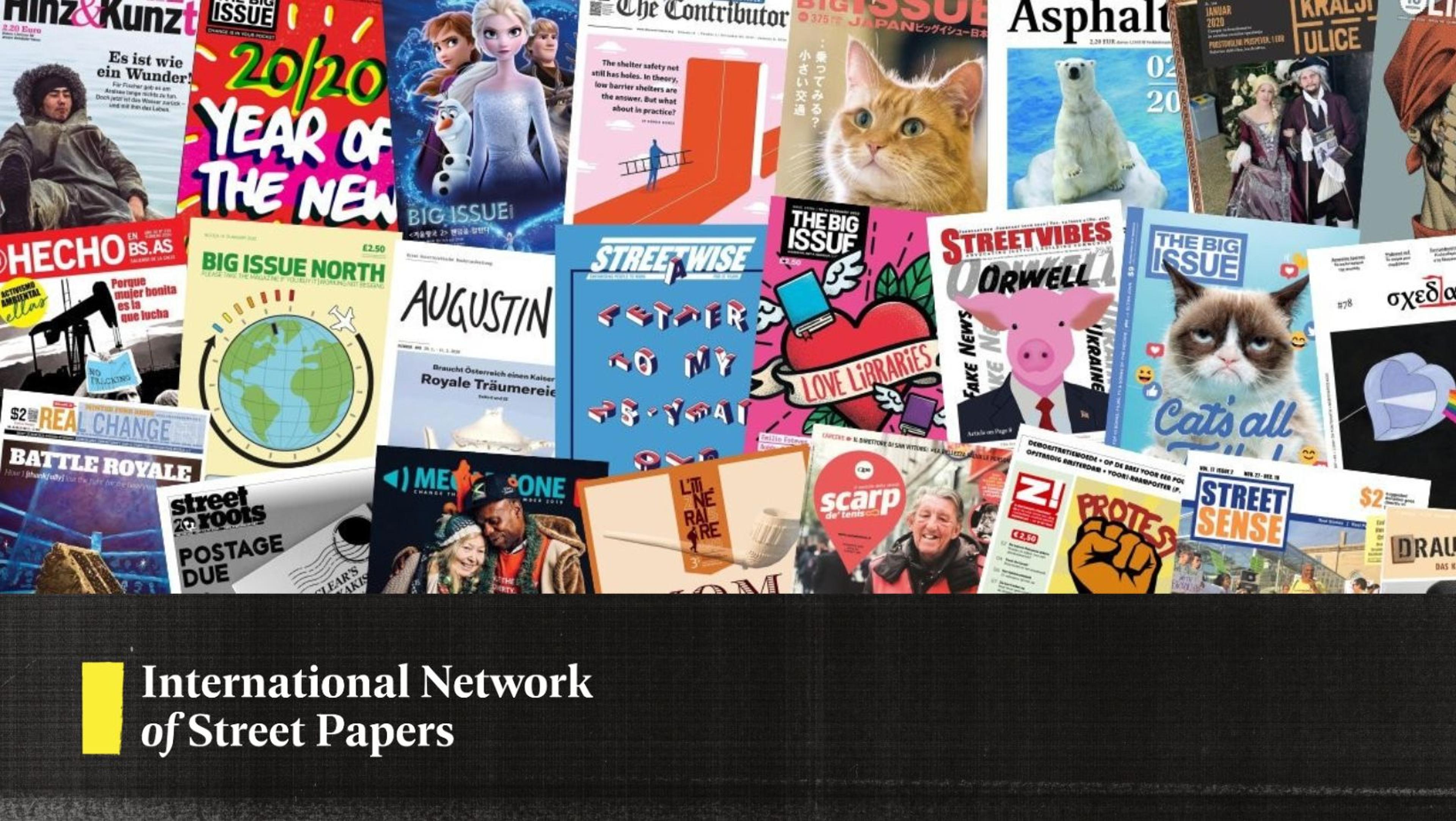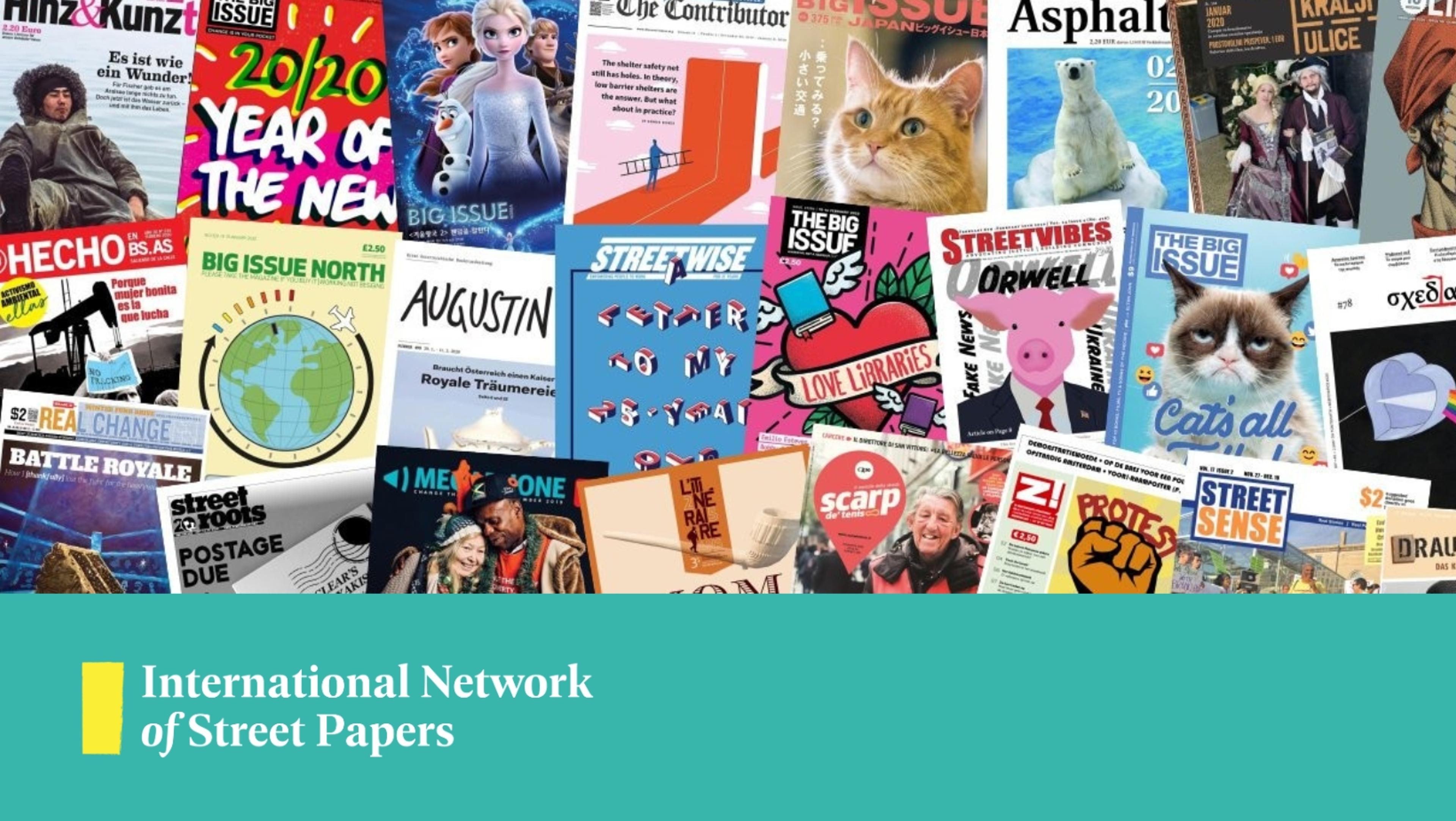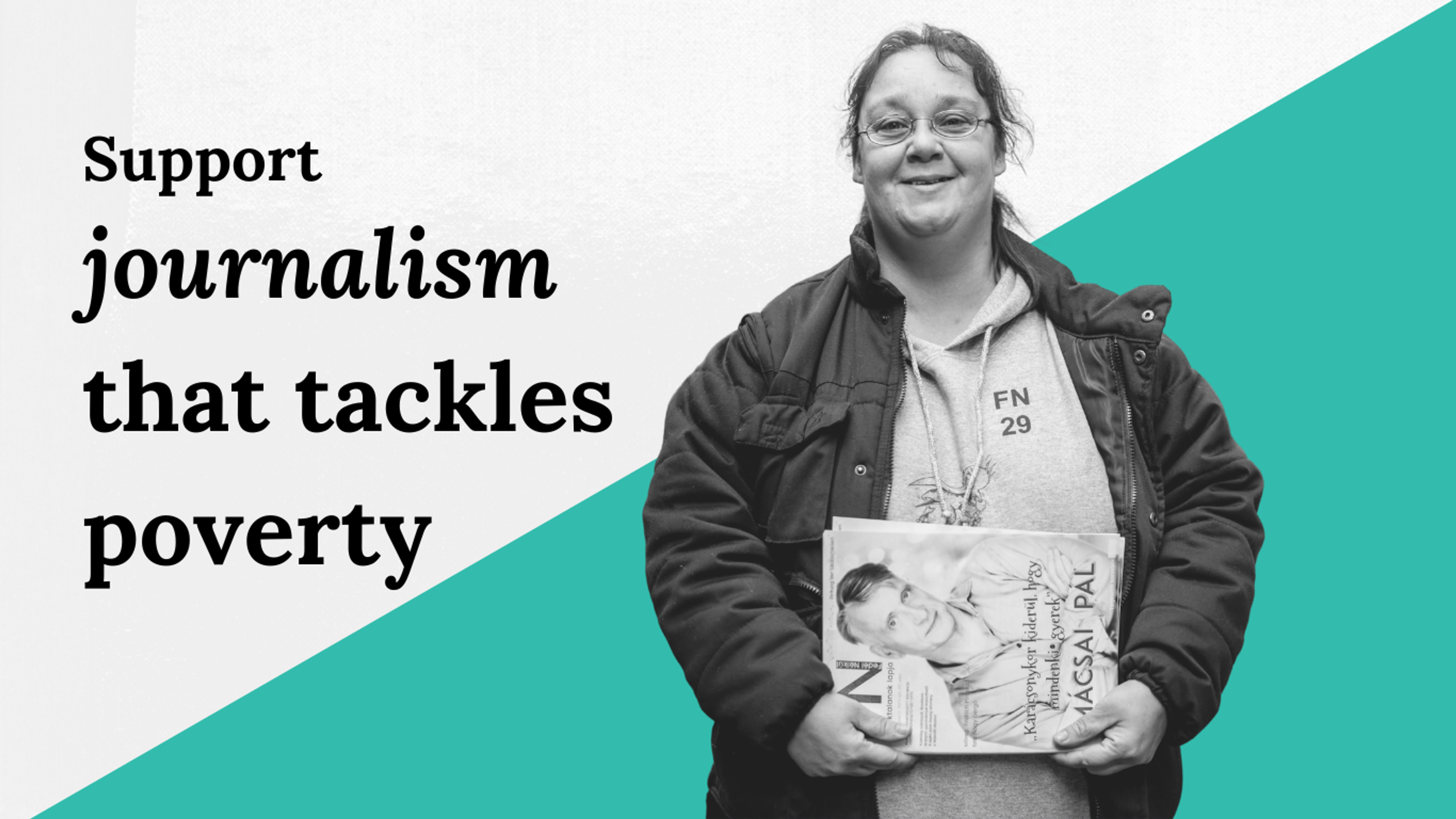As editor at the International Network of Street Papers, I am tasked with supporting street papers editorially, ensuring they have high quality journalism to call upon, and ensuring their sustainability. Street papers embody a guiding light of modern journalism: unbeholden to corporate power, interests and profit-making organisations, the state or political movements. They exist solely to empower the marginalised people they work with – their vendors – economically and journalistically. That means the people you buy the magazine from on the street are also the people whose voices emanate from the pages.
Street papers are editorially inventive and liberated. They have forged their own path when covering the news, ensuring the groups and communities most disproportionately affected by the biggest issues and crises we face as a society – namely those experiencing poverty and homelessness – are given a platform, to be the authoritative source for a piece of in-depth reporting, or the writer themselves. This has meant these groups are shaping their own narrative, and providing readers a different, more inclusive, more informed lens on how to view the world. Each time I read, edit and publish a street paper story – about homeless camp sweeps, about the way the climate crisis creates anxiety for people in precarious housing situations, about the mental health impact of looking for a new job, or take your pick from countless more – I become more aware and understanding of intersectional challenges facing society’s most marginalised people.
Street papers, and the rich tapestry they have woven across the world, provide us all with an alternative to the norm, one that is colourful and exciting, pushing the boundaries of what journalism can be, and what it can be used for. Because independent media continues to face an extreme threat to its future, the survival of street papers is vital: to continue holding our leaders and representatives to account, to continue existing as a key pillar of democracy, to continue being a key tool to unlocking our understanding of the communities we live in, and to continue giving people a right to be heard. This World Press Freedom Day, support the International Network of Street Papers and street paper journalism.





